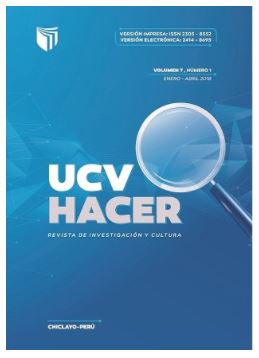Facebook as a teching tool in the teaching and learning processes
Keywords:
Facebook, Logical Thinking, Web 2.0Abstract
This research is based on a framework of educational innovation by making use of Facebook as a pedagogical tool in teaching of Logical thinking course with the aim of moving the teaching practice in new learning environments, increase the interest, high motivation students and results in the assessment of learning. The sample was 80 students ( considered as users) of A and B sections of the Professional School of Accounting during the academic semester 2015- 11. In the frrst instance starts the development of the subject using standard strategies during the first unit; then, in units 2 and 3, use the social network Facebook asan educational tool. Through this space could create among members, open communication channels, sharing information in a dynamic and effective way to strengthen practices related to learning; class guides whose presentations were associated with the use of web 2.0 tools such as Prezi, Issuu, voki; as well as tutorials for feedback of new knowledge in physical class attendance; in addition to publishing multiple choice questions to encourage discussion related to the themes developed in the subject; achieving record 89.90% of immediate visits after each publication, justifying the effectiveness of the proposal; since the results in the evaluation of learning indicate that at the end of the second unit the 49% students passed the course; unlike the results of the evaluation of learning with the proposal that justifies its positive e:ffect by presenting expected results at the end of the unit number 3 with 91 % of students approved in this subject.
Downloads
Downloads
Published
How to Cite
Issue
Section
License

This work is licensed under a Creative Commons Attribution-NonCommercial-ShareAlike 4.0 International License.










